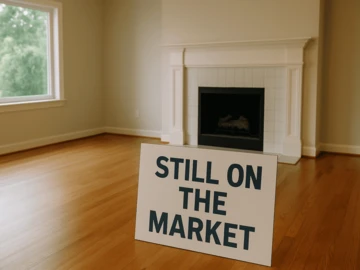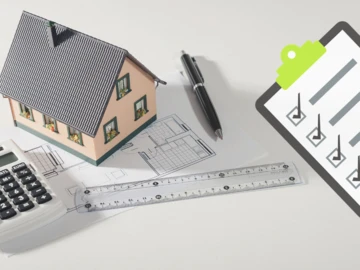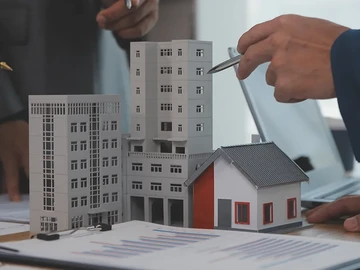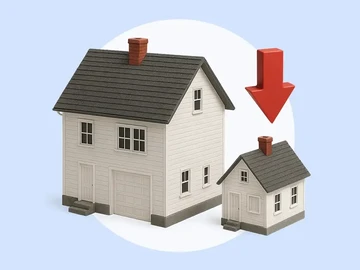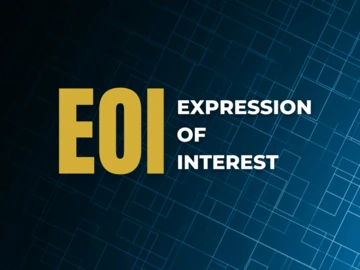Mortgages and home loans are essential for many Zimbabweans to finance property purchases, especially in urban areas where property prices range from US $25,000 to over US $850,000. Understanding how mortgages work helps buyers make informed decisions, avoid financial pitfalls, and budget accurately.
2025 Snapshot:
- Mortgage uptake accounts for 60–70% of urban property purchases in Harare and Bulawayo.
- Average mortgage interest rates in Zimbabwe range from 14% to 22% per annum, depending on the bank and loan term.
- Average loan tenure: 10–20 years.
What is a Mortgage or Home Loan?
Definition: A mortgage or home loan is a financial agreement between a borrower and a bank or financial institution, where the bank lends money to purchase a property, and the property itself serves as collateral.
Key Features:
- Borrower retains occupancy rights while repaying the loan.
- Bank holds a bond or cession on the title deed until the loan is fully repaid.
- Interest is charged on the outstanding balance, with fixed or variable rates depending on the bank.
Types of Mortgages in Zimbabwe
|
Type |
Description |
Typical Use |
|
Fixed-rate mortgage |
Interest rate remains the same throughout the loan tenure |
Predictable monthly repayments, usually 10–15 years |
|
Variable-rate mortgage |
Interest rate changes based on bank policy or market |
Can fluctuate monthly; may benefit from rate drops but risk higher payments |
|
Balloon payment mortgage |
Small monthly payments with a large final payment |
Short-term loans or investment properties |
|
Bridging loan |
Short-term loan to bridge sale of current property |
Buy a new property before selling the old one |
Eligibility Criteria
1. Income Verification
- Banks require proof of stable income (salary slips, bank statements).
- Debt-to-income ratio is assessed to ensure affordability.
2. Credit History
- Good credit history improves approval chances and interest rates.
3. Deposit / Down Payment
- Typically 20–30% of the property value is required upfront.
4. Property Valuation
- Bank requires an official valuation to determine loan-to-value ratio.
5. Documentation
- ID or passport
- Proof of residence
- Employment verification
- Title deed or cession document
How Mortgages Work Step by Step
Step 1: Determine Your Budget
- Calculate how much you can afford for a down payment and monthly repayment.
- Include costs for stamp duty, transfer fees, and legal expenses.
Step 2: Apply for Pre-Approval
- Banks assess your income, credit history, and the property value.
- Pre-approval helps in negotiating the property price.
Step 3: Sign the Agreement of Sale
- Include clauses for bank approval, repayment schedule, and penalties.
Step 4: Bank Loan Approval
- Bank conducts property valuation and credit assessment.
- Interest rate and repayment term are agreed upon.
Step 5: Register Bond / Cession
- Bank lodges a bond or cession at the Deeds Office, retaining rights until full repayment.
- Borrower can occupy and use the property during the repayment period.
Step 6: Monthly Repayments
- Fixed or variable interest applied to outstanding loan balance.
- Repayments cover both principal and interest.
Step 7: Full Ownership Transfer
- Once loan is fully repaid, the bank releases the bond or cession.
- Title deed is transferred fully to the borrower.
Calculating Mortgage Repayments
Formula for monthly repayments:
M=Pr(1+r)n(1+r)n−1M = P \frac{r(1+r)^n}{(1+r)^n-1}M=P(1+r)n−1r(1+r)n
Where:
- M = Monthly repayment
- P = Principal loan amount
- r = Monthly interest rate (annual rate ÷ 12)
- n = Total number of monthly payments
Example:
- Property value: US $150,000
- Down payment: 20% (US $30,000)
- Loan amount: US $120,000
- Interest rate: 18% per annum (1.5% per month)
- Loan term: 15 years (180 months)
Monthly repayment ≈ US $1,866
Tip: Use bank-provided mortgage calculators for accurate estimates.
Costs Associated With Mortgages
- Down payment / deposit: 20–30%
- Stamp duty: 3% for residential properties
- Deeds Office transfer fees: 1–2%
- Legal/conveyancing fees: 1.5–3%
- Valuation fees: US $250–$900
- Mortgage initiation fees: US $200–$500
Total additional costs can reach 5–10% of property value.
Risks and Considerations
1. Interest Rate Fluctuations
- Variable-rate mortgages may increase monthly repayments if rates rise
2. Currency and Inflation Risks
- Zimbabwe’s dual currency system may affect affordability for foreign currency earners.
3. Late Payments
- Penalties and potential foreclosure if repayments are missed.
4. Property Market Risks
- Declining property values can affect equity and resale potential.
5. Cession or Bond Delays
- Bank may hold Title Deed until full repayment, delaying resale or refinancing.
Practical Examples
Example 1: First-Time Homebuyer
- Grace buys a townhouse in Mount Pleasant, Harare.
- Down payment: 25% of US $180,000 = US $45,000
- Loan: US $135,000 at 18% over 15 years
- Monthly repayment: ~US $2,100
- Full ownership after 15 years, with Title Deed released by bank.
Example 2: Investor Using Balloon Payment Loan
- Investor purchases a rental property in Borrowdale.
- Monthly repayments are low initially, with a lump sum at the end of 5 years.
- Suitable for high-cash-flow rental strategies.
Tips for Mortgage and Home Loan Success
1. Save for a Larger Deposit
- Reduces loan amount and monthly repayments.
2. Compare Banks and Rates
- Interest rates, processing fees, and flexibility vary significantly.
3. Check Loan Terms
- Prepayment penalties, late payment fees, and variable vs fixed interest options.
4. Engage a Conveyancer Early
- Ensures bond/cession is correctly lodged and reduces transfer delays.
5. Plan for Additional Costs
- Include stamp duty, legal fees, valuation, and municipal clearances.
Summary
- Mortgages in Zimbabwe 2025: Provide financing for urban residential and commercial properties.
- Loan Terms: Typically 10–20 years with interest rates of 14–22% per annum.
- Eligibility: Stable income, good credit, deposit of 20–30%, verified property valuation.
- Costs: Include down payment, stamp duty, legal fees, valuation, and Deeds Office transfer.
- Tips: Budget carefully, engage professionals, and compare lenders for the best rates.
2025 Market Insight:
- Mortgage uptake accounts for 60–70% of urban property purchases.
- Popular areas: Harare (Mount Pleasant, Borrowdale, Avondale), Bulawayo (Montrose, Hillside)
- Mortgages remain the most viable method for middle-class Zimbabweans to own property.
 Continue with Facebook
Continue with Facebook
 Continue with Email
Continue with Email





